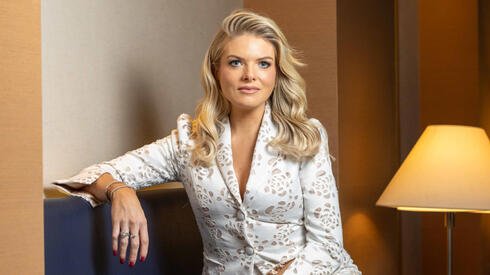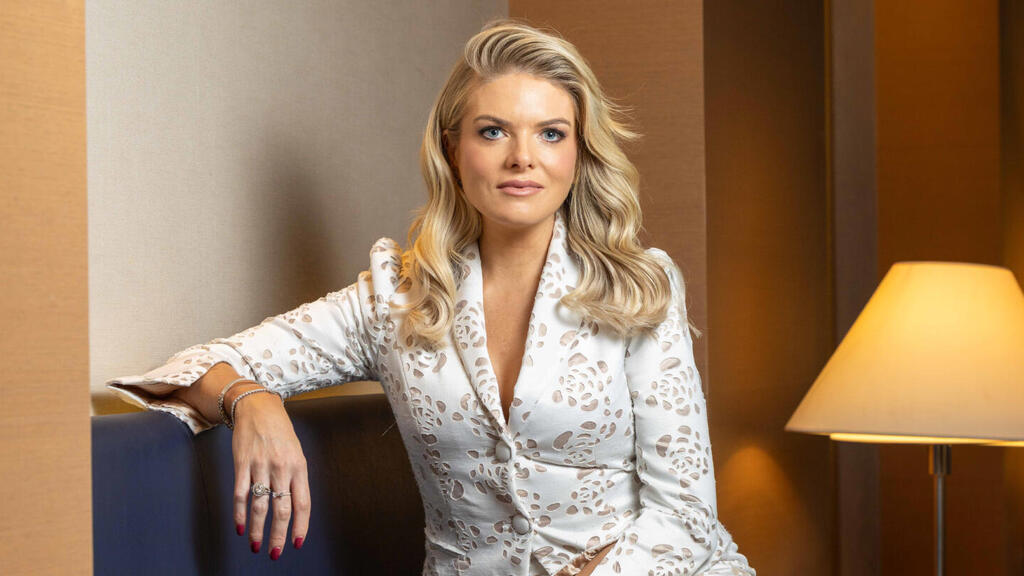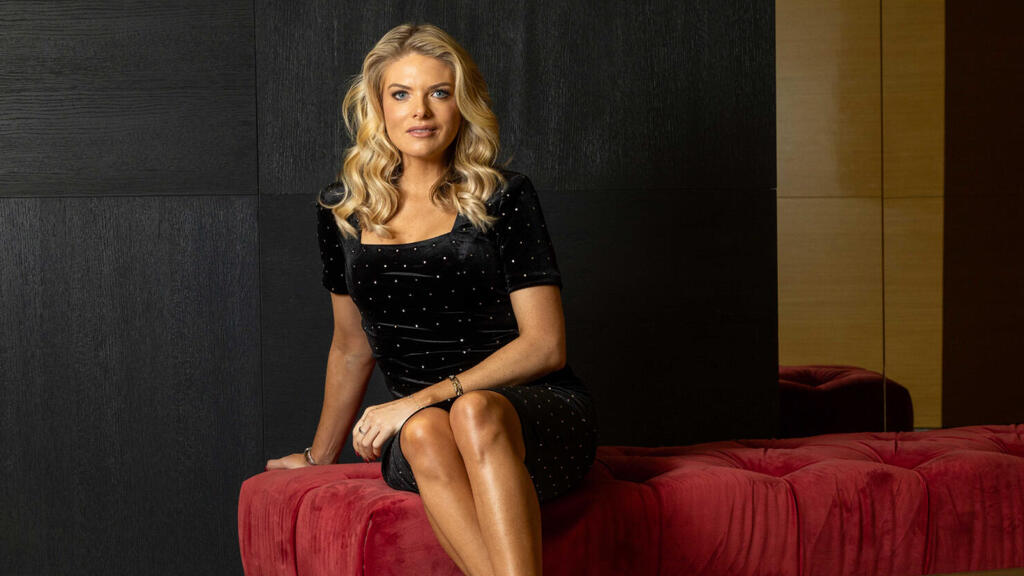“Every country in the world has people who are evil, has people who are stupid, has people with violent mentalities,” Molan said. “It’s the silence of the majority that I can no longer tolerate. It’s the fellow countrymen and women here in Australia who are not speaking up. It’s just as bad.”
Speaking via Zoom from Australia on Sunday morning—hours after Melbourne was rocked by three violent antisemitic incidents—Molan described the silence as both “deafening” and “heartbreaking.” Her remarks echo the feelings of Jewish leaders who say they feel angry and abandoned in their own country.
“We have learned the limits of the government,” said Alex Ryvchin, co-CEO of the Executive Council of Australian Jewry. “The government alone cannot deal [with rising antisemitism]. This requires a societal approach.”
Ryvchin, who immigrated from Ukraine and now advocates for the Jewish community, said that large segments of civil society have remained silent as antisemitism has escalated from a concern to a full-blown crisis. He asked why Australians are not taking to the streets to denounce the violence, as they do for other causes, and said it feels as if both the public and the government are passively allowing Jews to be targeted for a war taking place more than 11,000 kilometers away.
“Russia invades Ukraine, unleashing a barbaric campaign against civilians. No Russian restaurants in Melbourne are attacked,” wrote documentary filmmaker Danny Ben-Moshe in an open Facebook post over the weekend. “China commits genocide against Uyghurs. No Chinese restaurants in Melbourne are attacked. India responds to a terror attack in Kashmir by attacking Pakistan. No Indian restaurants in Melbourne are attacked. Israel is at war with Hamas (and yes, innocent Palestinians are dying). An Israeli restaurant in Melbourne is attacked.
“We know for the ‘protestors’ this is not about justice or human rights, for they are universal,” Ben-Moshe continued. “This is about targeting Jews and only Jews. There’s a term for that: antisemitism.” Community leader Adam Slonim echoed the point on social media: “This is not just a Jewish problem. This is an Australian problem. A country where another house of worship is firebombed and it doesn’t dominate the news cycle for a week—that’s a country in moral retreat.”
The violence continued overnight when another group spray-painted antisemitic graffiti on three cars and a wall outside a business in Greensborough, northeast Melbourne, and then set the vehicles on fire, destroying one and damaging two. Police noted the company is owned by a Jewish Australian and had been targeted before.
Following the weekend attacks, police boosted patrols in Jewish neighborhoods. According to the Executive Council of Australian Jewry, the latest arson is the tenth attempted firebombing of Jewish property in the past year and the second synagogue attack. Seven months ago the Adass Israel Synagogue in southern Melbourne was set on fire while people were inside; no arrests have been made.
Beyond the headline cases, the community has documented neo-Nazi demonstrations, antisemitic graffiti, verbal harassment, and intimidation. In most instances, no one has been charged. Jewish residents say the antisemitism is becoming bolder—and more dangerous.
“It is a shock to the Jewish community, which was not used to antisemitism before October 7,” said Ilana Maizels, executive director of JNF Australia—Melbourne. She said that while the community has endured loud and sometimes violent protests in the city center for the past 21 months, recent events “have stepped it up a notch.”
Maizels added that just last month she worried about her family in Israel as Iran launched ballistic missiles toward their homes. Now those relatives are calling her to check on her safety in what was once a peaceful Australia. “There is a crisis in this country,” Ryvchin added. “The fabric of our society is being ripped apart. Things are getting worse and worse.”
5 View gallery
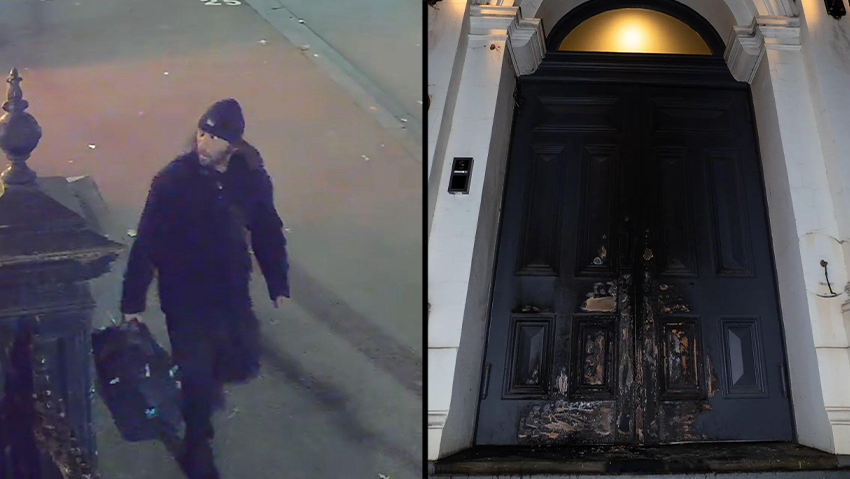

Suspected arsonist in synagogue fireboming, synagogue’s doors following the attack
(Photo: Victoria Police, social media)
Prime Minister Anthony Albanese condemned the incidents as “cowardly,” declaring that “those responsible must face the full force of the law.”
The Jewish Community Council of Victoria urged the state government and police to keep speaking out forcefully and acting decisively, calling the attacks unacceptable and demanding that perpetrators be brought to justice. Even so, the council said it remains “aggrieved and alarmed” by the slow pace of change.
Community leaders say they have been asking for meaningful measures for too long. Slonim wrote on Facebook: “We know our leaders condemn it. We heard the premier’s words. We heard the prime minister’s too. But we are past the point where condemnation is enough. We are frightened and angry. And worse—we are becoming accustomed to this fear.”
Southwick, a member of parliament, said that the community had been “promised a lot of laws” that have yet to materialize. After the first synagogue bombing at Adass in December, the government vowed to ban protesters from wearing masks and from demonstrating near places of worship, but, he said, “Nothing has changed.”
Government officials appointed the first envoy to combat antisemitism, Jillian Segal, yet Southwick said she is still getting her bearings. Meanwhile, a long-awaited package of anti-extremism laws is not expected to take effect until September—too little, too late, according to many in the Jewish community.
“The police need to be monitoring social media, finding out who the organizers of these events are, and have them rounded up and locked up,” Southwick said. He accused the government of “complete negligence” and “poor management,” claiming it hesitates to act for fear of upsetting Muslim communities, who often support the Labor Party.
5 View gallery
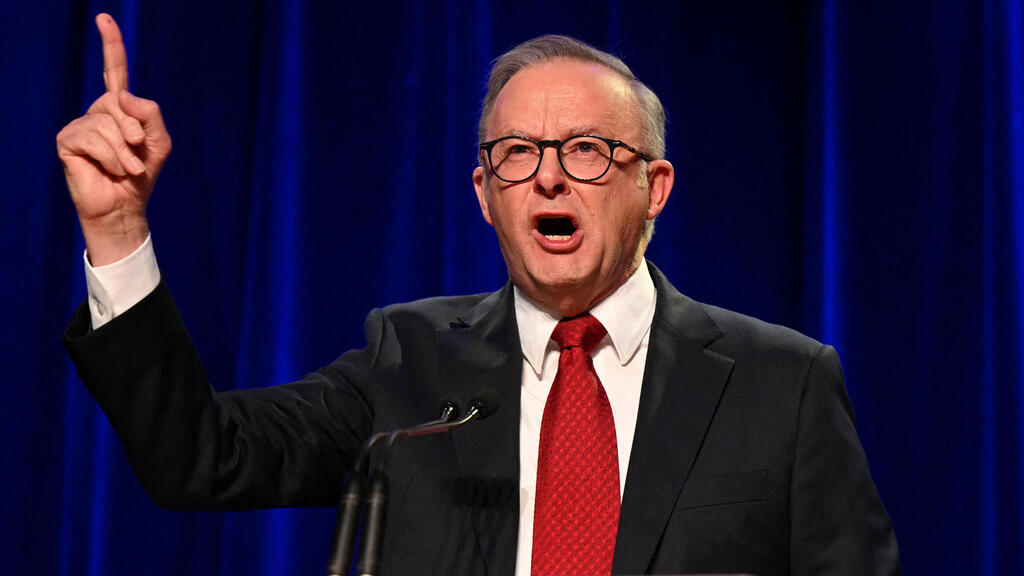

Australian Prime Minister Anthony Albanese
(Photo: AAP Image/Lukas Coch/via REUTERS )
In May Albanese’s Labor Party won reelection in a landslide over a conservative challenger. Although Labor has traditionally enjoyed Jewish support and is not widely viewed as antisemitic or anti-Israel, many in the community now believe the party is pandering to Muslim voters.
Yet Southwick said growing public outrage may force the government’s hand. “Every media outlet in Victoria and Australia is talking about this,” he noted. “The government will hopefully be dragged to the table, kicking and screaming, to fix things. They have to. That is the only hope we have.”
Ryvchin said that the Jewish community submitted a 15-point action plan to combat antisemitism to both the ruling coalition and the opposition in February. The opposition reviewed and supported the proposal, developed with security experts, but “the government never even looked at it,” he said. Still, he hopes the plan will now be given the attention it deserves. “This is not the freedom to protest,” JNF’s Maizels said. “This has crossed lines.”
“It starts with words and ends in violent incidents like the ones we’ve just witnessed,” added Australasian Union of Jewish Students emissary Tobias Siegal. “No one expected this to become the new reality for Australian Jewry. Many young Jews are now questioning whether they have a future here at all.”
Ryvchin acknowledged that extremism existed in Australia even before October 7, yet it rarely targeted Jews. The outbreak of the Israel-Hamas war, he said, “was like every antisemitic individual in society stepped forward and has done so brazenly, openly, and with impunity.” Nonetheless, he emphasized the community’s resilience.
5 View gallery
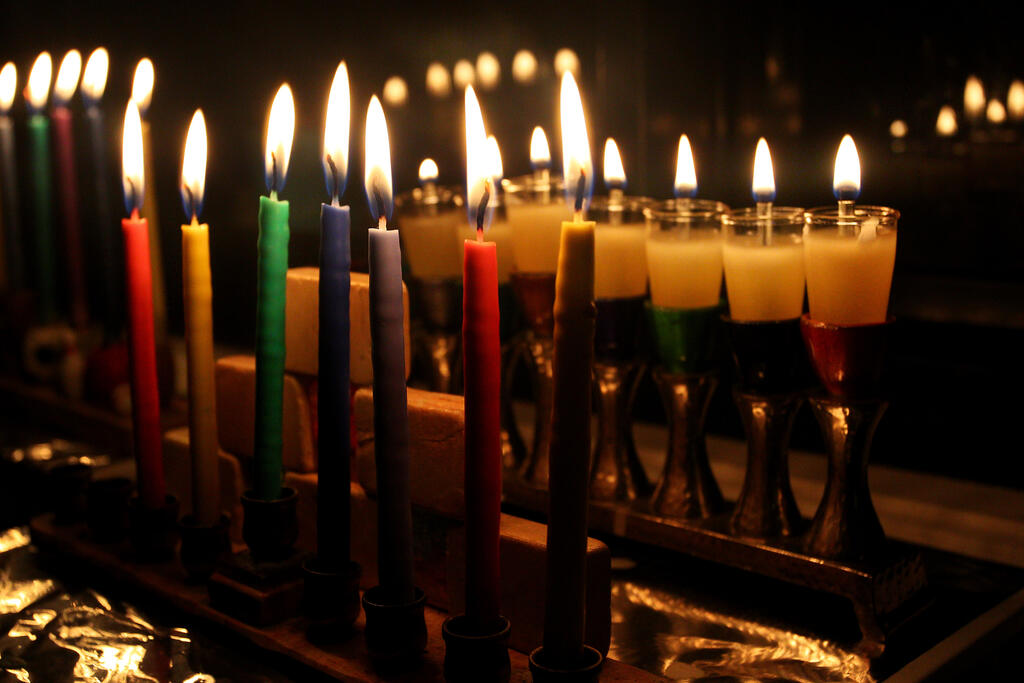

Hanukkah candle-lighting ceremony in Australia
(Photo: Lisa Maree Williams / Getty Images)
On the contrary, a record number of Jewish Australians turned out for last year’s Hanukkah candle-lighting ceremony. People continue to attend synagogue regularly, and participation in Jewish and Zionist organizations “has never been higher,” according to Ryvchin. “The community has come through incredibly well, with resilience and strength.” Yet he admitted that many are growing weary.
As Prime Minister Benjamin Netanyahu lands in Washington this week to discuss potential steps toward ending the war, Australian Jews are asking whether life will ever return to what Maizels once described as their “Garden of Eden”—the idyllic life they had before the violence and hate.
“The community is hoping the end of the war brings the end of antisemitism,” Southwick said. “But many people say the genie is out of the bottle.” Molan warned that Australia is hurtling toward disaster—and that the situation may not end with the Jews.
“I believe most people are inherently good,” Molan said. “I just feel like we’ve been able to be lazy for far too long. If you don’t want to get involved, it’s been OK to sit back. Not anymore. That time has now passed. “Silent majorities all over the world need to start speaking out,” she said. “It’s gone too far.”



